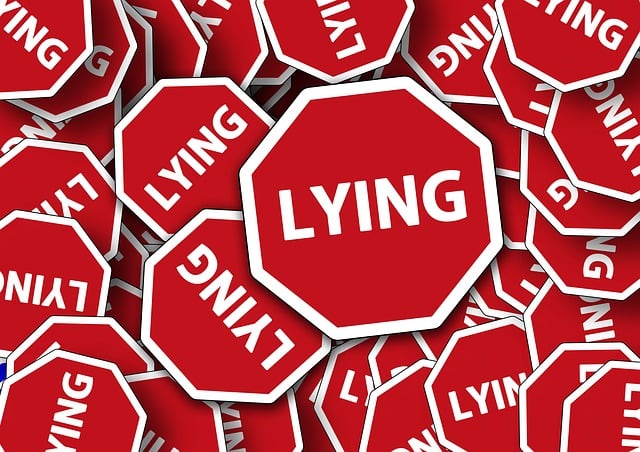When reaching the final stages of a Personal Contract Purchase (PCP) agreement, understanding your options and the associated costs is crucial. The decision to purchase the car outright involves settling the deferred capital balance due, which includes not just the outstanding balance but also any additional fees such as option-to-purchase fees and early termination penalties if applicable. It’s important to compare this amount with your vehicle’s market value as reported by PCP claims services. These services provide critical insights into the actual worth of your car, which can differ significantly from the settlement figure stipulated in your PCP statement. Equity positions—positive or negative—will influence whether you can trade in your vehicle or must settle any remaining balance. Staying informed through PCP claims news is essential for making a financially sound decision, whether that means purchasing your car outright or exploring other options at the end of your PCP contract. By understanding the nuances of the PCP claim process and keeping up with the latest PCP claims news, you can navigate this transition confidently, ensuring it aligns with your long-term financial strategy.
When the final mile of your Personal Contract Purchase (PCP) agreement approaches, understanding your options becomes paramount. This article delves into the intricacies of PCP claims and what they mean for you at the end of your contract. We’ll guide you through the process of navigating PCP claims news and your car leasing agreement, ensuring you’re well-equipped to make an informed choice about exercising your purchase option. Join us as we unravel the pros and cons associated with this decision, empowering you to take the next step confidently.
- Decoding End of Contract Purchase Options for PCP Cars: A Closer Look at PCP Claims News
- Navigating the Process: What You Need to Know About PCP Claims and Your Car Leasing Agreement
- Making an Informed Choice: The Pros and Cons of Exercising Your PCP End of Contract Purchase Option
Decoding End of Contract Purchase Options for PCP Cars: A Closer Look at PCP Claims News

navigating the intricacies of Personal Contract Purchase (PCP) agreements can be a complex task for car owners nearing the end of their contracts. PCP claims news often highlights the confusion surrounding the final steps of this financial product. At the conclusion of a PCP contract, vehicle owners have several purchase options to consider. One such option is opting to buy the car outright by paying the remaining capital balance due on the PCP agreement. This requires a lump sum payment that covers the deferred value of the car as stipulated in the original contract terms. It’s imperative for car owners to review their PCP statements carefully, as this document outlines the total settlement figure, which includes the outstanding balance plus any additional charges such as option-to-purchase fees and early termination penalties if applicable.
The decision to purchase the car at the end of a PCP contract should be informed by a comprehensive assessment of one’s financial situation and the car’s market value. PCP claims news often discusses the discrepancies between the settlement figure and the car’s actual market value, which can either lead to a positive or negative equity position. Positive equity means the car is worth more than the settlement figure, potentially allowing for trade-in opportunities or partial payments on a new vehicle. Conversely, if the car’s market value is less than the settlement amount, the owner must settle the difference. In either case, it’s crucial to engage with the PCP provider to understand all associated costs and potential savings. Staying informed through PCP claims news ensures that car owners can make an educated decision at the end of their PCP contract, whether choosing to own the car outright or pursuing alternative options.
Navigating the Process: What You Need to Know About PCP Claims and Your Car Leasing Agreement

When considering the transition from personal contract purchase (PCP) to full ownership of your vehicle, it’s crucial to understand the mechanisms behind PCP claims and how they align with your car leasing agreement. Upon reaching the end of your PCP contract, you have the option to return the vehicle, trade it in for a new model, or opt to purchase it outright. Should you choose to exercise the latter option, you’ll need to settle the optional final payment stipulated in your agreement and submit a PCP claim form provided by the finance company. This form will necessitate details such as mileage, condition of the car, and any additional payments owed. It’s imperative to thoroughly review your contract for specific terms and conditions related to the optional final payment, as this will influence the final purchase price.
PCP claims are a formal process that involves assessing the vehicle’s value at the end of the lease term, considering its condition and the agreed mileage. The difference between the car’s settlement figure—based on its depreciated value—and any outstanding payments you owe, will determine the optional final payment due. To navigate this process smoothly, ensure all necessary documentation is in order and that you’re up-to-date with your contractual obligations. Stay informed about PCP claims news, as updates to regulations or changes in the market can affect the terms of your contract and the process of claiming ownership of your vehicle at the end of the lease. By understanding the intricacies of PCP claims and adhering to the terms of your car leasing agreement, you’ll be better equipped to make an informed decision regarding the future of your vehicle.
Making an Informed Choice: The Pros and Cons of Exercising Your PCP End of Contract Purchase Option

When your Personal Contract Purchase (PCP) agreement reaches its concluding phase, one of the key decisions you face is whether to exercise the end of contract purchase option. This choice entails buying outright the car you’ve been driving under the PCP scheme. To make an informed decision, it’s crucial to weigh the advantages and disadvantages of this action.
On the positive side, opting to buy your vehicle at the end of the contract can be financially advantageous, as it allows for predictable monthly payments over a period that suits your budget. Moreover, if you’ve developed an attachment to your car or it has proven to be reliable and cost-effective, purchasing it outright may seem like a sensible next step. However, before making a PCP claim—a process often covered in the latest PCP claims news—consider the potential market value of your vehicle. If it’s higher than the outstanding balance, you stand to benefit from owning the car without additional payments. Conversely, if the market value is less than what you owe, you might end up paying more for the car than it’s worth. Therefore, thorough research and careful financial planning are essential to determine whether exercising your PCP purchase option aligns with your long-term goals and financial situation. Keeping abreast of the latest trends in PCP claims can provide valuable insights into making this decision, ensuring that you are fully informed and prepared for the potential commitments or benefits at the end of your PCP contract.
When reaching the culmination of your PCP agreement, understanding the end-of-contract purchase options is key to making an informed decision. This article has dissected the complexities surrounding PCP claims and car leasing agreements, offering a comprehensive overview of what you need to know to navigate this process effectively. By examining the pros and cons associated with exercising your PCP end of contract purchase option, consumers are now equipped with the knowledge necessary to make a choice that aligns with their financial situation and personal needs. For the most current information on PCP claims and updates in this domain, staying abreast of PCP claims news is advisable. Remember, at the conclusion of your PCP agreement, the decision to buy out your car lies in your hands, and with the insights provided here, you can approach this decision confidently.
